- Home
- H A CULLEY
The Sacred War Page 5
The Sacred War Read online
Page 5
The surgeons weren’t as panic stricken as those who had been with him. They had to almost force the men who crowded into the hospital tent out of it so they could get to work. Once they had, they gently cut off the arrow at the point and then came the delicate business of removing the eye and the point of the arrow without doing further damage. An hour later they stitched up the wound and put a bandage over the vacant socket. He had lost his eye but he was otherwise fine. However, his soldiers were furious when they heard the news and so, when they did breach the gates and sacked the city, they exacted a terrible revenge.
By the time that the city had been captured Philip was just about fit enough to ride again, though his empty eye socket pained him for a long time afterwards. As he advanced along the coast he destroyed a number of fishing villages and small towns before he arrived at Ainos . The city was sited the on western bank of the River Hebrus where it flowed into the sea. It was the start of the land route from the Euxine Sea to the Aegean and was the major port for exporting the corn, wood and fruit produced in eastern and central Thrace. It wasn’t a city that Amadocus could afford to lose and still regard himself as the king of south western Thrace.
The city was built on a ridge of rock surrounded by broad marshes that bordered the river estuary. Philip realised that it was going to be a difficult place to capture, but that wasn’t his immediate aim. He wanted to lure Amadocus into trying to relieve the besieged city so that he could destroy his army. That achieved, he could take his time to take Ainos . What he hadn’t allowed for was Cersobleptes coming to his brother’s aid.
-o0o-
Iphitos was finding it increasingly difficult being around Sostratos and Chloe. The man he served was obviously in love with the woman that the boy had come to adore. When he first knew her he had accepted the fact that she had sex with various clients; it was her profession and romantic feelings weren’t involved. Though he didn’t think Chloe loved her husband, Sostratos was besotted with her and consequently he was jealous; increasingly so.
At fifteen, Iphitos knew that it would be ten years before it was acceptable in Macedon for him to marry, but that didn’t help the longing that gnawed away inside him. He came to the conclusion that he would have to leave so he didn’t have to see them together each day or he would risk becoming so out of control that he might even kill his commander in a fit of jealous rage.
It would have helped if Sostratos and he had departed with Parmenion when he left with the bulk of the army to join Philip outside Ainos , but the taxiarch had been appointed to command the training force in Illyria and to oversee the construction of the four forts. Therefore, instead of sending Chloe to his house in Pella, she remained with him in Damastion . The only time she didn’t accompany him was when he went to inspect work on the forts. When he returned from one of these visits Iphitos decided that it was time he spoke to him about Chloe.
‘You asked to see me about a private matter?’ Sostratos asked from behind his desk in the room he had commandeered in the hegemon’s palace.
He didn’t invite Iphitos to sit down or to relax so the boy stood uncomfortably at attention in front of him.
‘Yes, taxiarch. Thank you for seeing me. It’s about Chloe.’
Sostratos’ eyebrows shot up. He regarded Iphitos as a good aide who did his job well and his spying mission and his rescue of Chloe from Potidaea had impressed him. Nevertheless, the boy was the second son of a dead Illyrian noble and Sostratos, being something of a snob, looked down on him in consequence.
‘I know you rescued her and I’m grateful to you for that, but that’s all in the past now. We’re to be married and I don’t think my future wife should be of any concern of yours, do you?’
‘What? Married?’
He wrung his hands in despair and felt as if a horse had kicked him in the guts.
‘Yes, now was there anything else?’
Iphitos stumbled out of the room without waiting to be dismissed and went to find somewhere where he could be alone with his misery. He didn’t know how he got there but, when he became conscious of his surroundings, he realised that he was rocking to and fro in the foetus position in a corner of the temple of Zeus on the acropolis. He wasn’t exactly alone. People passed him constantly, going into and leaving the temple. The smell of cooking meat came wafting to him from the fires beside the sacrificial altar and he realised that he was hungry.
He made his way back to the palace where he shared a room with several Macedonian ephebes, the sons of those stationed at Damastion with Sostratos. They attended the military academy that Sostratos had recently established to train Illyrian officers and the room was therefore deserted. When he had eaten, he lay on his bed lost in thought. He should have been in the scribe’s office in case Sostratos needed him, but he had already decided that he couldn’t go on serving him. However, he didn’t know what else he could do. Officially he was still a hostage; one of those handed over as part of the peace treaty between Illyria and Macedon.
He sighed. He couldn’t stay where he was. The ephebes would be back from the academy soon and the last thing he wanted was to face their questions, and their inevitable derision once they found out why he was so despondent. He decided to go back to see Sostratos and ask to be transferred elsewhere.
When he reported back he never got a chance to ask for another private word with his commander. Instead the chief clerk told him that Sostratos had been asking for him and he was to go straight in.
Sostratos was reading a scroll whilst the messenger who had brought it waited patiently at the side of the desk.
‘Ah, there you are. Where’ve you been? Never mind, it seems that King Philip has need of your skills again,’ the taxiarch began. ‘You are to travel to Ainos in Thrace with this man and be attached to the king’s personal staff. He wants you to get into the city and make an assessment of its defences, much as you did at Potidaea.’
He paused and looked the boy in the eye, giving him a look that betrayed his intense dislike before continuing.
‘Perhaps you might find another hetaera to comfort you,’ he sneered. ‘That might help you to forget about Chloe.’ He paused before adding nastily, ‘I sincerely hope that we don’t meet again.’
-o0o-
The messenger turned out to be one of Philip’s Companions, the third son of an important noble from Orestes in Western Macedon. At first Iphitos was so sunk in misery that he was a poor travelling companion but, surprisingly, the messenger, whose name was Lysis, didn’t take offence at the boy’s surliness.
As they crossed the border into Macedon Iphitos’ mood began to lighten and he realised that he quite liked Lysis. He was witty and good fun to be with. As he was only nineteen they were quite close in age, which helped them to become friends as the days wore on. At one stage he did wonder whether Lysis might fancy him. He knew that he was a good looking boy and he caught Lysis studying him from time to time but, if he did so, he made no move to get intimate with him.
When Lysis told him that he had fallen in love with a friend of his sister’s, the boy told himself that he’d been a fool to think that his companion was interested in him romantically. Lysis went on to say that he hadn’t seen the girl for over a year and, of course, he was far too young to contemplate marriage. Then he broke down in tears when he said that a few months ago she had been married to a middle-aged widower whose estate adjoined her family’s land.
Iphitos felt sorry for Lysis but he was a little embarrassed by his companion’s show of emotion. Nevertheless, he sat down beside him and put his arms around him to comfort him. He quickly realised that had been a mistake when Lysis tried to kiss him.
The boy pushed him away in disgust and Lysis started to weep again, cradling his head in his arms. Iphitos ran away from the clearing where they’d made camp and wandered the woods for nearly an hour before he plucked up the courage to return. He’d intended to tell Lysis that they could be friends, but nothing more. However, when he got there he found that
the clearing was deserted. Lysis had gone and he had taken Iphitos’ horse and the packhorse with all the supplies. The boy was left in the middle of nowhere with nothing more than the clothes he stood up in and the sword at his waist.
-o0o-
Philip was making little headway with his siege of Ainos . The winter storms prevented re-supply by sea and the chain boom he had placed upstream of the city mean that boats on the Hebrus couldn’t reach it. The causeway through the marsh from the west was guarded by a strong detachment of his troops. There was nothing else he could do for the moment. If all else failed, he could starve the population out, or he could try and take the city by subterfuge. For that he needed intelligence about the city’s defences and entry points and that meant getting someone on the inside.
The variety of Greek spoken by Macedonians differed from the Thracian dialect so he needed someone whose accent wouldn’t arouse suspicion. He could have used one of the Illyrian hostages from his school of pages but he wasn’t sure how far he could trust them, and they didn’t have the expertise in espionage that Iphitos had. No doubt they would been found out within hours and that would have queered the pitch for Iphitos before he had even arrived.
Then, at the start of the new year , two things happened on the same day. A scout came in to report that a massive army was approaching along the Hebrus Valley from the north and a messenger arrived from Parmenion saying that his army was a day’s march away.
Two days later, leaving troops in place to continue the blockade, Philip and Attalus led their army around the marshes and onto the plain through which the river flowed. He kept the bulk of his men on the western bank, but he sent a hipparchia of cavalry over to the other bank to make sure he wasn’t outflanked. It was a wise move; the enemy were also advancing down the western side of the river. He left an ilium on the east bank to give warning if any enemy tried to bypass him and take him in the rear, and then deployed his men to face the Thracians.
He rode forward with Attulus to meet the Thracian delegation, which appeared to consist of Cersobleptes , a couple of priests and a few senior officers.
‘Greetings King Cersobleptes . I assume that you have come to the aid of your brother, who seems conspicuous by his absence.’
‘Greetings Philip of Macedon. My brother advances from the west as we speak. You have been caught in a trap.’
The man grinned triumphantly, exposing a mouth from which most teeth were missing and those that were there were blackened and rotting.
‘Your threats are as toothless as your mouth, Cersobleptes . I doubt very much whether Amadocus will be in any position to join us. I fear that I must make do with the pleasure of defeating just you today.’
‘What? What do you mean? Your lies won’t save you, usurper!’
Philip laughed. ‘Lies? I think not!’
He beckoned his aide forward who handed the Macedonian king the leading rein of the horse on which sat a man with a sack over his head. Philip took hold of the sack and pulled it off revealing a face covered in blood and with matted hair. Nevertheless it was unmistakeably Amadocus .
‘I’m afraid that your brother ran into Parmenion and his army yesterday as they were marching from Pella to join me. Amadocus was taken by surprise whereas Parmenion was already warned by his scouts. They annihilated the Western Thracians so now all I have to do is to defeat you and I will control all of coastal Thrace from Philippi to Byzantium and the Bosphorus.
Cersobleptes wasn’t overly fond of his brother, after all they were rivals for the throne of a united Thrace, but the defeat of his army and his capture caught him by surprise. His first instinct was to retreat, but one glance at the two thousand cavalry behind Philip told him that this would be a costly option as his army would be harried and cut down as it retreated back up the valley. Instead he chose to fight.
Philip’s army consisted of seven thousand infantry, most of them hoplites, a thousand peltasts and two thousand cavalry. However, only a thousand of his heavy infantry were professional hoplites armed with the sarissa; the rest were militia with the normal twelve foot spear. Against this the Thracians had twelve thousand infantry, all lightly armed spearmen, two thousand peltasts and three hundred cavalry.
The Macedonians were drawn up with the hoplite phalanx in the centre, then the peltasts, the light infantry and finally the cavalry on the wings. As usual, Philip waited for the enemy to attack first but Cersobleptes showed no inclination to do so. This suited Philip as he knew that time was on his side.
After an hour of this stand-off, a scout came riding in and talked to Cersobleptes . Immediately the Thracians started to advance and Philip grinned to himself. He knew what this presaged. Parmenion was on his way. The Thracians ran forward and stopped a couple of hundred yards away from the Macedonians. Their peltasts ran forward to bombard the hoplites facing them, but they just crouched behind their shields and most emerged unharmed from the first volley of stones, arrows and javelins.
Before they could get a second volley away, the Macedonian cavalry charged in from each flank across the front of the Thracians and speared or cut down many of the peltasts. Their infantry surged forward to attack the cavalry but they had turned and returned to their original positions before they were in any real danger. Now the Macedonian peltasts let fly in enfilade at the lightly armed spearmen and they fell in droves.
The angry Thracians surged forward against the phalanx and the light infantry who protected Philip’s peltasts. Those in the centre ran onto the hedge of sarissas and failed to get to grips with their opponents. The others fared little better against the hoplites in the militia. Only on the flanks, where lightly armed spearmen fought on each side was the fight more equal, but then the peltasts let fly with arrows and javelins at high trajectory into the middle of the press of Thracians.
For the moment Philip’s cavalry held off from charging, although the Thracian flanks were a tempting target. After an hour of furious combat the Thracians started to withdraw to regroup. They left behind perhaps three or four thousand men on the battlefield, the greatest heaps of the dead lying in front of the hoplites armed with sarissas. In contrast, the Macedonians had lost less than a thousand.
Cersobleptes had just given the order to charge again when he heard the puzzling sound of a koras coming from his rear; several more responded and he turned to see Parmenion’s army streaming down from the hills into the river valley behind him. He knew then that he was trapped and the battle was lost.
-o0o-
Lysis hadn’t gone more than ten miles before he began to regret his abandonment of Iphitos. He had been enthralled by the handsome boy as soon as they had met, but he knew instinctively that Iphitos wasn’t interested in him either sexually or romantically. He had therefore tried to curb his desire. It was true that Lysis had been in love with his sister’s friend, but he liked both girls and boys. When Iphitos had hugged him, his attempt to kiss him had been impulsive and the boy’s disgusted rejection had made him thoroughly ashamed of himself for giving way to temptation.
He had ridden away without thinking things through. The need to escape from the scene of his humiliation had overridden his common sense. As soon as he came to his senses and realised that Iphitos was alone miles from anywhere with no horse, no food and no water, he immediately became concerned; so much so that he immediately turned round and hastily retraced his steps. However, when he got back to the campsite Iphitos wasn’t there.
Once he found that he was on his own, Iphitos had taken stock of his situation and tried to visualise in his mind the ground that they had covered over the last day or two. He remembered seeing the odd farm complex in the distance as they travelled the road from the border into Macedon, but this was a sparsely populated region and it would take him days to get back to the nearest farm on foot.
They had also seen the odd goatherd and shepherd with their flocks in the hills above the road but, again, he didn’t think that they had seen one in the last day or so. In any case, th
ey moved around and there was no guarantee of finding one again. The area was mainly scrub with a few trees and little cultivation near the road. There had been vineyards and groves of olives and figs on the hillsides in the distance but they had seemed to be quite some distance away and, in any case, there had been no sign of life on the slopes.
Then he remembered seeing a small temple on the top of a hill the afternoon before they had stopped. He calculated that it was probably four hours walk away but it was getting dark and there was no hope that he could find it in what remained of the daylight. He therefore wrapped himself in his chamlys and, with only a drink of water from a small stream to sustain him, he settled down for the night under a large oak tree.
He woke the next morning stiff with cold. It was midwinter and the night time temperature in the hills of northern Macedon were close to freezing. His teeth chattered as he ran and jumped to try and get some warmth back into his body. However, the exercise made him feel weak as he’d had nothing to eat in the past twenty four hours and his stomach rumbled with hunger. He took a long drink of ice cold water from the stream and headed back along the road towards where he remembered seeing the temple in the distance.
At midday the sun was warm but not too hot. Nevertheless, Iphitos was feeling very weak and was about to take a rest when he spotted the temple. It took what little energy he had left to climb up to it but, when he got there, he found it was deserted and beginning to crumble into a ruin. He sat down and cried in frustration.
Lysis had panicked when he found that Iphitos had disappeared. Not only was he deeply worried about his safety, but he was also well aware that Philip had sent him to fetch the boy urgently. He daren’t return without him. There was no plausible excuse he could give for his failure and he feared the king’s wrath. Of course, he had no way of knowing that Iphitos’ help was no longer necessary. Following the capture of their king and his brother, Ainos had already surrendered.

 The Wolf and the Raven
The Wolf and the Raven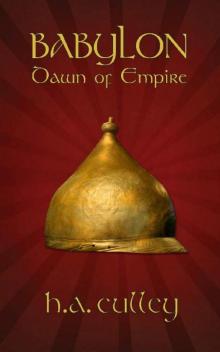 Dawn of Empire
Dawn of Empire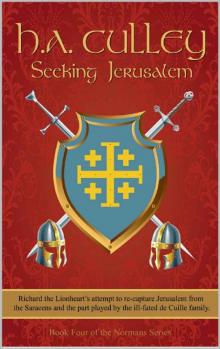 Seeking Jerusalem
Seeking Jerusalem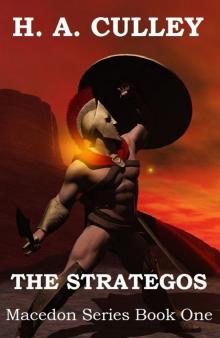 The Strategos
The Strategos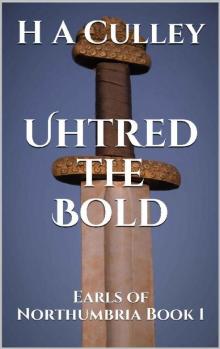 Uhtred the Bold
Uhtred the Bold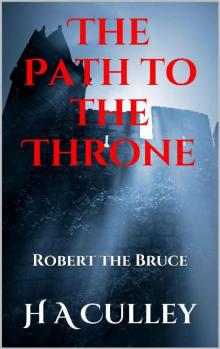 The Path to the Throne
The Path to the Throne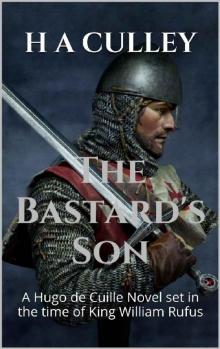 The Bastard's Son
The Bastard's Son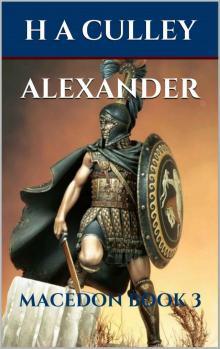 Alexander
Alexander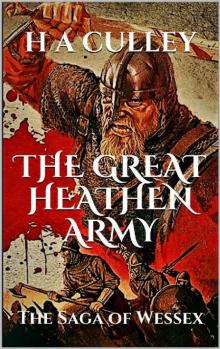 The Great Heathen Army
The Great Heathen Army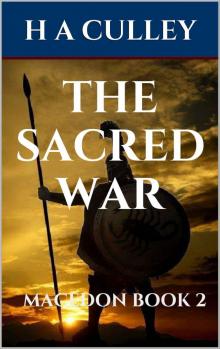 The Sacred War
The Sacred War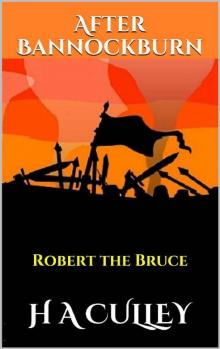 After Bannockburn
After Bannockburn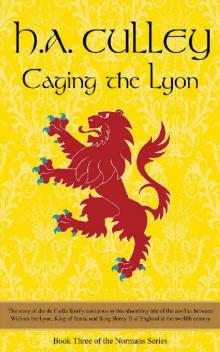 Caging the Lyon
Caging the Lyon The Bastard's Crown
The Bastard's Crown WHITEBLADE
WHITEBLADE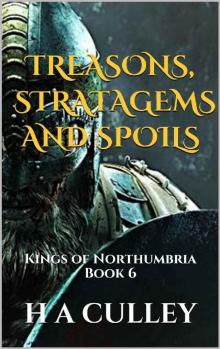 TREASONS, STRATAGEMS AND SPOILS: Kings of Northumbria Book 6
TREASONS, STRATAGEMS AND SPOILS: Kings of Northumbria Book 6 THE POWER AND THE GLORY: Kings of Northumbria Book 4
THE POWER AND THE GLORY: Kings of Northumbria Book 4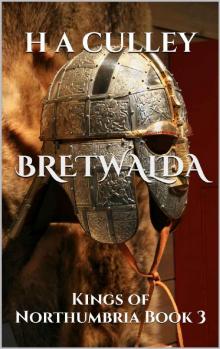 BRETWALDA: Kings of Northumbria Book 3
BRETWALDA: Kings of Northumbria Book 3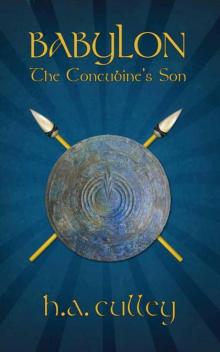 The Concubine's Son
The Concubine's Son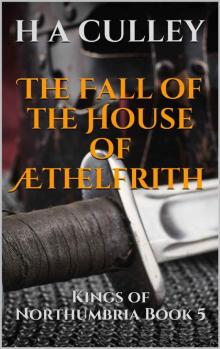 The Fall of the House of Æthelfrith: Kings of Northumbria Book 5
The Fall of the House of Æthelfrith: Kings of Northumbria Book 5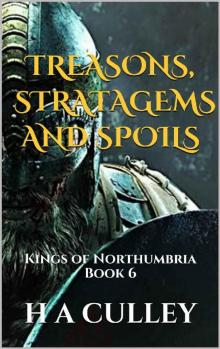 TREASONS, STRATAGEMS AND SPOILS
TREASONS, STRATAGEMS AND SPOILS THE POWER AND THE GLORY
THE POWER AND THE GLORY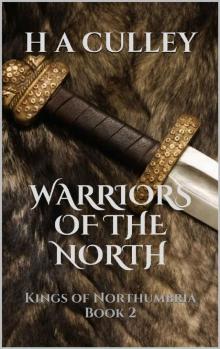 WARRIORS OF THE NORTH
WARRIORS OF THE NORTH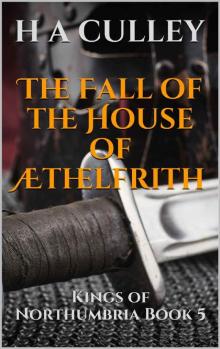 The Fall of the House of Æthelfrith
The Fall of the House of Æthelfrith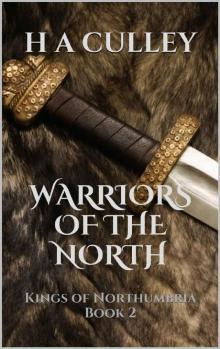 WARRIORS OF THE NORTH: Kings of Northumbria Book 2
WARRIORS OF THE NORTH: Kings of Northumbria Book 2 WHITEBLADE: Kings of Northumbria Book 1
WHITEBLADE: Kings of Northumbria Book 1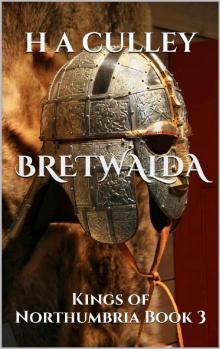 BRETWALDA
BRETWALDA